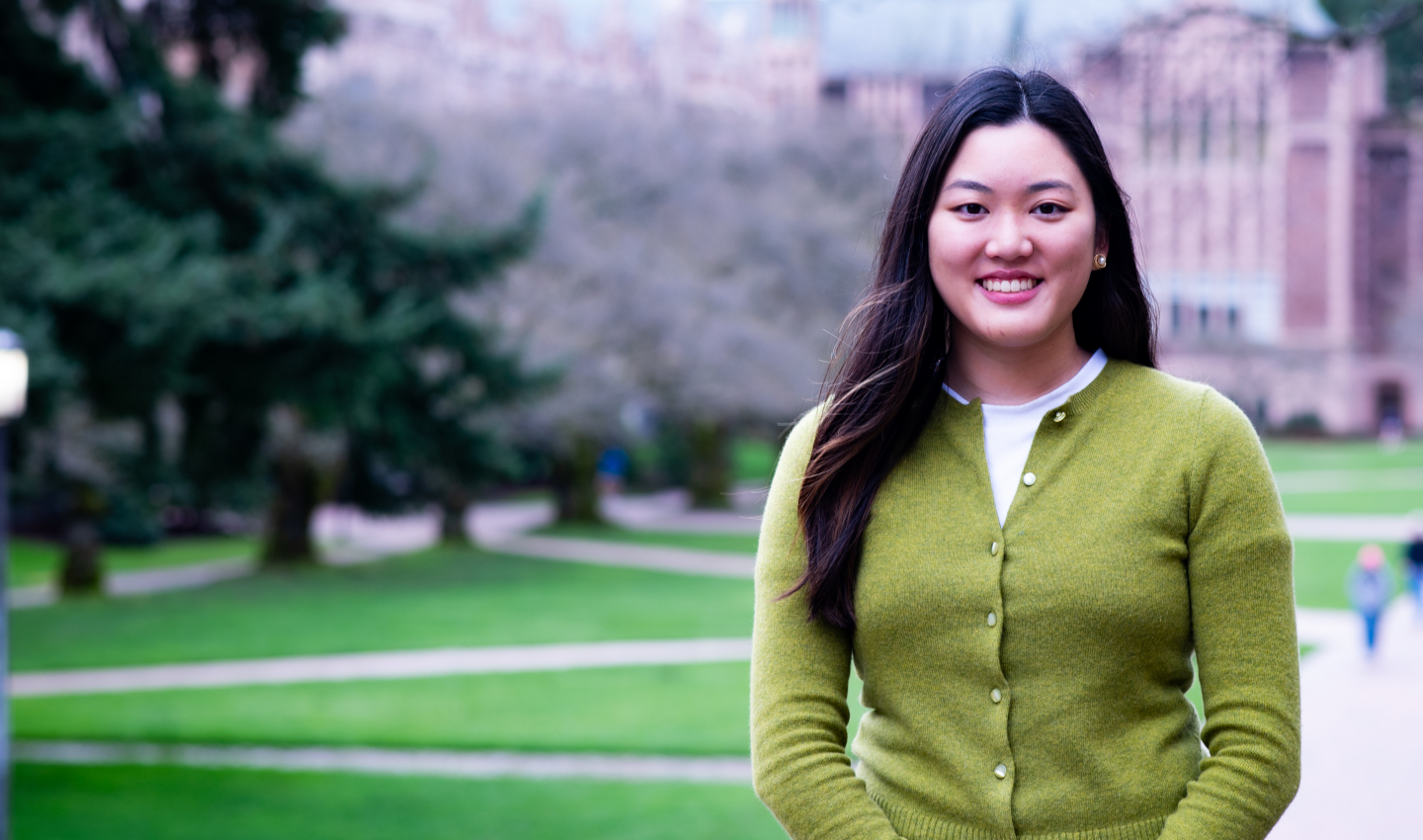After graduating from the UW with a B.S. in Public Health and a B.A. in Communication, Alexandria (Ali) Lo landed a fellowship tracking many diseases, including COVID-19, Mpox and bird flu. There, she worked alongside data scientists who helped her team process genomic (DNA and RNA) data. She helped coordinate with clinicians, epidemiologists and legal teams to devise patient care plans such as quarantines.
The experience with the Association of Public Health Laboratories and the Centers for Disease Control and Prevention stirred her interest in learning more about data work. She found purpose in analyzing data models, uncovering how they build equity and connect communities. That brought her back to the UW to pursue a Master of Science in Information Management.
“I like the stakeholder management aspect and working with different communities, but I didn't understand enough of the data part, which is what brought me back to the iSchool,” she said.
At the iSchool, she received the Donald and Lynda Horowitz Endowed Fellowship in Information Technology and Justice, which offered her the opportunity to explore career paths she hadn’t considered and dive deeper into the ones she was already passionate about.
This fellowship opened doors to opportunities for hands-on experiences where Lo could combine dataset building with her health-care background. She participated in a machine learning and AI ethics independent study under iSchool Assistant Professor Mike Teodorescu. In this independent study, she explored how demographic factors like sex and ethnicity play out in health-care algorithms. Additionally, Lo received the opportunity to partake in the leadership academy at the Alene Moris Women’s Center at the UW. She found a strong community and a place to reflect on her career path and her leadership as she entered the professional world.
Lo’s fellowship led her to a summer internship with Thermo Fisher Scientific, working with program managers, data scientists and engineers on advanced cancer detection models. One of her primary responsibilities included creating a program management dashboard to track program health (i.e., cost, risk, schedule), resource allocation and financial metrics.
Lo recently completed an internship with the Government Accountability Office in Washington, D.C. She said she’s gained valuable experience working in the audit function of the legislative department. “It’s been interesting learning more about the political space and the corresponding data analysis processes,” she said. She added that in some cases, it’s important to be cautious when communicating certain messages, especially when it is a partisan issue, to ensure that the data and information are accurate and useful.
The fellowship marked a significant turning point in Lo’s career, breaking new ground into fields she had not thought to explore before. “I thought I wanted to go to med school,” she said. However, the fellowship led to opportunities where Lo could observe first-hand how data can work for people and its role in helping them make sustainable decisions.
“My favorite thing [about this field] is figuring out how data models work for people and communities, especially in certain spaces where that is not historically thought of,” she said.
Lo’s slightly unconventional path has given her an interdisciplinary perspective on her field. She has enjoyed “meeting all the different people and being able to communicate with different teams and work with them towards a similar goal,” she said.
